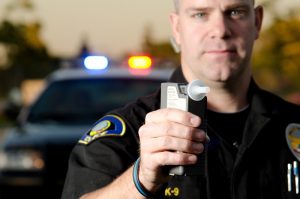Unlike other crimes, if you’re charged with a DWI or DUI in Missouri you will face both criminal and administrative penalties. Administrative penalties include having your license suspended immediately upon being apprehended, as well as the potential to have your license revoked for a set period of time. Criminal penalties comprise of the established penalties that belong to the degree of the crime, such as a misdemeanor or felony.
This means that when a person is arrested for the crime of driving while intoxicated (DWI) in Missouri, he or she will will have to contest the allegations at both an administrative and criminal level.
A DWI attorney is essential for both of these proceedings. This article outlines the series of events that take place when a person is facing DWI charges in Missouri and how finding the best DWI attorney in Missouri is your greatest chance at either having the charges significantly reduced or dismissed altogether.
If you find yourself facing DWI charges, contact DWI Springfield today. Our team has handled thousands of criminal cases and we know how difficult these situations can be. Let us help.
Contact us today for: DUI Lawyer – Springfield MO.
Arrested for DWI in Missouri: What  Happens First?
Happens First?
Once you are arrested at the scene of the crime for a DWI charge you will then be taken down to the police station where you will be “booked”. Booking is required from all persons who are arrested. This record is an official action that must be completed. Booking encapsulates various procedures that are done to the person being arrested such as taking a “mugshot”, getting fingerprinted, taking a DNA sample, checking for any previous warrants or criminal a record, receiving a full body research, along with taking personal property into custody until the person is released.
It should be noted that even if a person is able to pay the posted bail immediately, they cannot leave until the booking process is completed. This can sometimes take hours. The best DWI lawyers are usually contacted before or during this process.
Along with booking and potential jail time until bail is posted, administrative actions take place instantly at the time of your arrest. In Missouri, if you are arrested for a DWI/DUI your license will seized by the arresting officer and a temporary one shall be issued. This permit is generally set to expire within 15 days of the arrest. After the expiration date of the permit, the driver’s license will be suspended anywhere from 30 to 90 days, all of which depends on prior DWI convictions within the last five years.
Administrative Hearing Process
As previously mentioned, at the time of your arrest you will be given a temporary permit to drive for the next 15 days. On the back of this permit are instructions on how to file for an administrative hearing. A request for a hearing must be filed before the 15 day limit on the permit expires. Once you are released from the police station or bail has been posted, you need to contact your DWI lawyer in Missouri immediately so that they can file the request for you.
After you have filed your request a letter will be sent to you that will have the date and place for your administrative hearing. Generally, your administrative hearing will be held anywhere from 4-6 weeks after you filed your request.
At this trial your DWI attorney will address issues like, whether or not the arresting officer had probable cause to pull you over/make an arrest, as well as, if your BAC (blood alcohol concentration) was over the legal limit, and if the officer followed sanctioned protocol throughout the entire process.
The results of your administrative hearing will be mailed to you after 10 days of the hearing. The results of this trial can affect your criminal trial, so if you lose you have the option to appeal the hearing.
Criminal Hearing Process
Arraignment
Just like your temporary permit, an arraignment date (usually 30-90 days after the arrest) will be given to you at either the moment of the arrest or once bail has been posted and you are free to leave the jail or police station. An arraignment hearing is when the DWI/DUI charge is formally delivered to the defendant. At the arraignment hearing the defendant is required to enter into a plea of guilty, not guilty, or no contest. DWI Springfield will make sure that you enter into the correct plea depending upon specific factors of your case. More often than not, it is in your best interest to enter a plea of “not guilty”.
After the defendant enters their plea, a pre-trial date will be given. The pre-trial usually happens within 30 days of the arraignment hearing.
Pre-Trial
The pre-trial is basically an opportunity for you to avoid going to trial. At the pre-trial your DWI attorney will negotiate terms between the judge and prosecuting attorney in order to 1) reduce the charges against you or 2) have the case dismissed. If a plea bargain cannot be made at the pre-trial, a date will be set for Trial. For many first-time offenders, the criminal process usually ends at the pre-trial. If the journey does end for them here, they are usually given their final penalties (if they were given any) and are required to complete court approved drug and alcohol programs as appointed by the judge.
DWI Trial
In Missouri, a DWI defendant has the right to trial by jury. During a DWI/DUI trial the prosecution must prove to the jury that the defendant is guilty of the crime beyond a reasonable doubt. Before the trial can occur a jury of 12 “peers” must be selected for the trial. Trial procedures for a DWI usually follow the subsequent guidelines:
- Opening statements are made at the beginning of a trial. Both the prosecution and defense make statements at the beginning of the trial. These statements work as a type of outline for the jury to follow throughout the trial.
- The Prosecution presents their case. At this point in the trial the prosecution will present all evidence against the defendant. This can include witness testimony, tactile evidence, and other important information. The defense may cross-examine the prosecution’s witnesses once the prosecution has finished their presentation.
- The Defense presents their case. This will include witness testimony and evidence or lack thereof. Once the defense is finished with their presentation, the prosecution many cross-examine the defense’s witnesses.
- Once closing arguments are made from both sides, the jury will go into “deliberations”. This is where the jury goes into seclusion to decide the outcome of the case.
- Once the jury has reached a conclusion, one jury member will announce the verdict to the court.
- Sentencing may occur immediately if the defendant is found guilty of the crime. However, sentencing can occur at a later hearing, as well. If found not guilty of the crime, the defendant will be free from all charges against him or her.
If you would like more information about finding the best DWI defense in Missouri, contact DWI Springfield today to schedule a consultation. Time is of the essence in these types of situations, so make sure to make arrangements to meet with a DWI lawyer as soon as possible.
